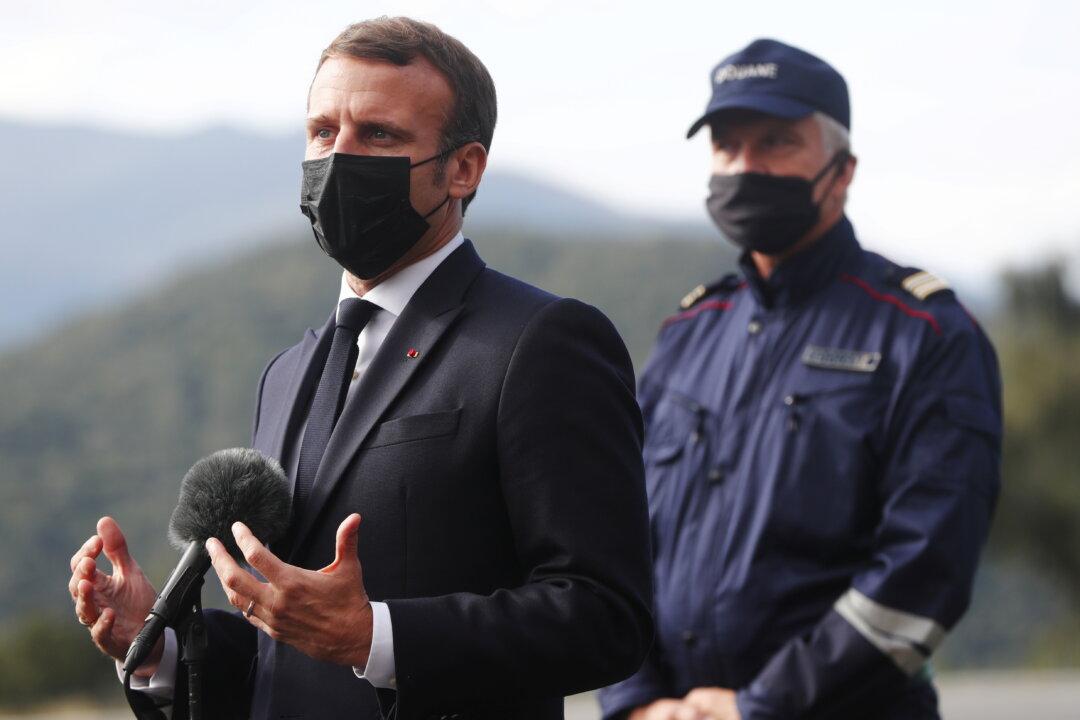French President Emmanuel Macron has reinforced border controls after his country was hit by a series of Islamic terrorist attacks.
During a visit on Nov. 5 to France’s border with Spain, Macron announced that France will bolster its border controls by doubling police and troops to 4,800, to stem illegal immigration amid what he called “a growing terrorism threat.”





